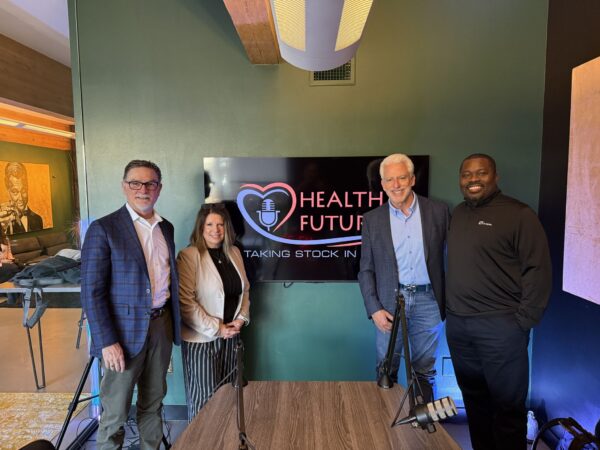On a recent episode of Health Futures – Taking Stock in You radio show and podcast, we had the pleasure of hosting Dr. Michael Breus, also known as “The Sleep Doctor.” As a clinical psychologist with board certification in clinical sleep disorders, Dr. Breus shared valuable insights about the connection between quality sleep and overall wellness, particularly for older adults.
For the full episode, CLICK HERE.
You can also find this on any of the following podcasts:
Why Sleep Matters for Seniors
According to Dr. Breus, sleep represents approximately one-third of our lives and is crucial for maintaining health, especially as we age. A recent survey by the National Sleep Foundation revealed that Americans who report poor sleep are four times more likely to experience unhappiness compared to those who get good sleep.
For caregivers and family members supporting aging loved ones, understanding sleep’s impact on health can be transformative. Dr. Breus describes sleep as “the little black dress of health” – something everyone needs in their wellness wardrobe.
Sleep Recommendations for Older Adults
While the general guideline suggests 7-9 hours of sleep for adults, Dr. Breus emphasizes that sleep needs can vary from person to person. He acknowledges that perfect sleep doesn’t exist and that sleep is flexible. However, he notes that insufficient sleep can worsen existing conditions like anxiety and depression, which are common concerns among seniors.
For caregivers working with older adults, Dr. Breus offers this practical advice:
- Consistency is key: Wake up at the same time seven days a week. This simple habit can improve sleep quality by 20-30% by regulating melatonin production.
- Understand chronotypes: People naturally fall into different sleep pattern categories or “chronotypes” – Lions (early birds), Bears (middle of the road), Wolves (night owls), and Dolphins (disrupted sleepers). As we age, our chronotypes often shift, which explains why many seniors prefer earlier dinners and bedtimes.
- Address sleep disorders promptly: Conditions like sleep apnea don’t resolve on their own and require proper diagnosis and treatment, especially in the senior population.
Beyond Sleep: A Holistic Approach to Senior Wellness
Dr. Breus’s latest book, “Sleep, Drink, Breathe: Wellness is Too Complicated,” offers a simplified approach to health that focuses on three fundamentals:
Proper Breathing Techniques
For seniors experiencing sleep difficulties, controlled breathing can be particularly effective:
- The 4-7-8 technique: Breathe in for 4 seconds, hold for 7 seconds, exhale for 8 seconds
- Nasal breathing: Always breathe in through the nose, which filters, warms, and moistens air for better oxygen absorption
Hydration Guidelines
For older adults, proper hydration timing is crucial:
- Consume most fluids earlier in the day
- Consider stopping fluid intake 3 hours before bedtime (especially for those with frequent nighttime bathroom trips)
- Sip water throughout the day rather than gulping large amounts
- Consider filtered water to reduce contaminants
Supporting Your Loved One’s Sleep Health
For family caregivers, helping aging loved ones establish healthy sleep routines can significantly improve their quality of life. Consider these approaches:
- Create a consistent schedule: Help maintain regular wake-up times, even on weekends
- Discuss sleep concerns with healthcare providers: Ensure potential sleep disorders like sleep apnea are properly addressed
- Implement relaxation techniques: Teach simple breathing exercises that can help with sleep onset
- Manage hydration thoughtfully: Balance proper hydration with minimizing nighttime disruptions
- Consider chronotype changes: Adapt schedules to align with changing sleep preferences as your loved one ages
Conclusion
Quality sleep is fundamental to healthy aging. By understanding the importance of sleep and implementing practical strategies shared by experts like Dr. Michael Breus, caregivers can help improve both the physical and mental wellbeing of their aging loved ones.
For more information about senior care and wellness, contact Cypress Home Care Solutions at (602) 264-8009 or visit CypressHomeCare.com.




